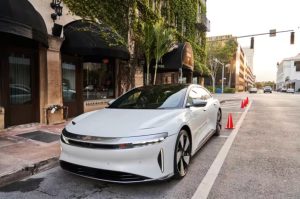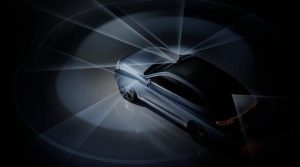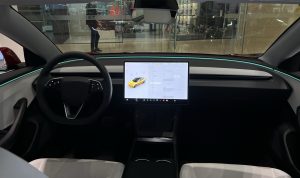Breaking News: XPeng Acquires Didi’s Car Business for 5.8 Billion HKD, First Model to Start Production Next Year
6 min read
XPeng Motors is embarking on a multi-brand strategy and revitalizing its presence in the A-level car market.
XPeng and Didi are joining forces to collaborate on car manufacturing.
On August 28th, just moments ago, XPeng Motors announced a strategic partnership with Didi, leveraging their respective strengths to rapidly promote the development of electric vehicles and related technologies.
Through this collaboration, XPeng Motors will enter the phase of a multi-brand strategy. The first model resulting from this partnership will be an A-level intelligent electric vehicle, projected to commence production in 2024 under the project codename “MONA.”
XPeng Motors’ official announcement of collaboration with Didi on car manufacturing
In this strategic collaboration, XPeng Motors will issue Class A ordinary shares accounting for 3.25% of the total share capital after the transaction is completed. This will involve the acquisition of Didi’s intelligent electric vehicle project assets and research and development capabilities. Following completion, Didi will become a strategic shareholder of XPeng Motors, with a lock-up period for the initial batch of shares lasting 24 months.
XPeng Motors’ announcement reveals that both parties signed a purchase agreement on August 27th, with the highest total consideration for this acquisition reaching around 5.835 billion Hong Kong dollars (approximately 540 million Chinese yuan).
After the news broke, XPeng Motors’ Hong Kong stock price surged by up to 16.21%. As of the time of writing, XPeng Motors’ stock price is 73.6 Hong Kong dollars per share (approximately 68.34 Chinese yuan per share), with a total market value of 127.6 billion Hong Kong dollars (approximately 118.5 billion Chinese yuan).
XPeng Motors’ stock price
In essence, this collaboration marks the conclusion of Didi’s previous car manufacturing plans and initiates XPeng Motors’ multi-brand strategy through the acquisition of Didi’s intelligent electric vehicle project.
As one of the collaborating parties, Didi had reportedly been considering independent car manufacturing since last year. It was rumored that Didi’s car project, codenamed “Da Vinci,” aimed to develop an A-level all-electric vehicle for the mass consumer market, priced around 150,000 yuan. The original plan was to launch it in June of this year.
Based on the current outlook, the first model resulting from XPeng and Didi’s collaboration appears to be the same as Didi’s first model, which the company began researching and developing last year. This also indicates that XPeng Motors is recommitting its efforts to the A-level car market.
On the whole, this collaboration offers a favorable outcome for Didi’s car manufacturing plans. Amid the increasing challenges of entering the new car market, Didi’s decision saves it from numerous potential difficulties.
For XPeng Motors, choosing to collaborate with Didi opens the door to a multi-brand strategy. This not only lays the groundwork for future sales growth but also provides opportunities for XPeng to further establish its presence in the B2B market through strategic cooperation with Didi.
- XPeng and Didi Reach Cooperation Agreement, Both Sides Will Collaborate on Car Manufacturing
The core of XPeng Motors and Didi’s collaboration will be an A-level intelligent electric vehicle. According to the agreement between both parties, this vehicle will not carry the XPeng Motors brand but will be launched under a new brand with the codename “MONA.” This new brand will differentiate itself from XPeng Motors’ existing brand positioning.
Didi will provide ecological empowerment to XPeng Motors, offering support across multiple dimensions including intelligent cabins, smart driving, and the shared mobility market for “MONA.” This will aid XPeng Motors in creating a popular model within the 150,000-yuan price range and accelerate the global application of autonomous driving and intelligent cabin technologies.
This also signifies that XPeng Motors will place a strategic emphasis on the A-level market through this collaboration. After the relatively unsuccessful attempts with G3/G3i and P5, XPeng Motors will make a fresh foray into this market with an entirely new brand category.

XPeng P5
Through this collaboration, XPeng Motors will become the first vehicle manufacturer to receive comprehensive support from Didi’s ecosystem. The two parties will explore various areas of cooperation, including the operation of XPeng vehicle models on the Didi platform, brand marketing, financial and insurance services, charging infrastructure development, Robotaxi services, and international market collaboration.
From this perspective, XPeng is likely to increase its investment in the B2B market in the future, which could potentially become a source of future sales. Additionally, XPeng previously announced its expansion into the Robotaxi market, and the collaboration with Didi might accelerate XPeng’s progress in this field as well.
To facilitate the collaboration, XPeng Motors will issue Class A ordinary shares accounting for 3.25% of the total share capital after the transaction is completed, as well as acquire assets and research and development capabilities related to Didi’s intelligent electric vehicle project.
- Didi’s Previous Car Manufacturing Plans and the Plan to Acquire Vehicle Manufacturers
As early as last year, rumors about Didi’s car manufacturing plans had been circulating, and with continued reports, the reality of Didi’s intention to manufacture cars became clearer.
At that time, media reports revealed that Didi’s car manufacturing project was codenamed “Da Vinci,” involving around 2,000 people. Didi’s previous collaboration with BYD resulted in the D1 model for the ride-hailing market and the C1 model aimed at the general consumer market.
Reports indicated that the D1 project was overseen by Didi Vice President Yang Jun, while the C1 project was led by Didi veteran employee Luo Wen, both reporting directly to Didi CEO Cheng Wei. Furthermore, Didi had already appointed individuals responsible for supply chain and user operations.
According to a Reuters report from June of last year, Didi planned to acquire one-third of the shares of electric vehicle manufacturer Guoji Zhijun, with sources revealing that the acquisition amount could reach 1 billion Chinese yuan, and the transaction could be finalized as early as the end of that month.

Screenshot of the Reuters Report at the Time
Guoji Zhijun Auto is a new energy vehicle company established by China Machinery Industry Group within and outside the Guoji Auto United Group. The company’s complete vehicle factory is located in the New Energy Vehicle Technology City of Ganzhou Economic and Technological Development Zone in Jiangxi Province, with a registered capital of 800 million Chinese yuan. Its main business includes the technological research and development and manufacturing of new energy vehicles and their key components.
According to the registration information of Guoji Zhijun on the Qichacha platform, China Machinery Industry Group and its holding companies collectively hold 67% of the shares of Guoji Zhijun.
However, there were no further developments on this event, and the rumors about Didi’s car manufacturing plans gradually faded.
With the recent news of the collaboration between XPeng Motors and Didi, it can almost be confirmed that Didi had indeed been planning a vehicle model targeted at the general consumer market.
- Conclusion: The Door to New Car Manufacturing is Closing
Jidu Auto transformed from a car manufacturer into a solution provider, Jiyue Auto controlled by Geely is preparing to produce cars; the Jishi 01 model is being produced by Beijing Automobile Manufacturing Plant; XPeng’s collaboration with Didi for car manufacturing…
From the recent information that has emerged, it’s evident that the door to new car manufacturing is gradually closing. With the tightening of entry policies, it has become increasingly challenging for newcomers to succeed in the car manufacturing industry.
However, this has also led to more resource consolidation, bringing together previously scattered resources. For the development of the intelligent electric vehicle industry, this isn’t necessarily bad news. As “loose change turns into real money,” the development of the intelligent electric vehicle industry is expected to accelerate, and the competition in the market will become even more intense.



